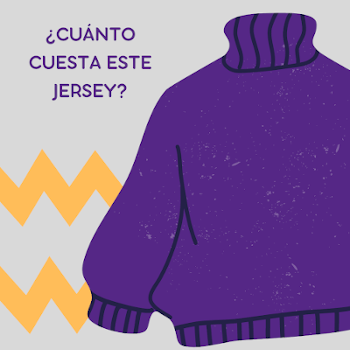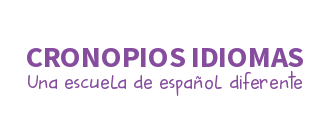Basic vocabulary to go shopping in Spain
Spain is one of the most visited countries in the world. Every year, millions and millions of tourists travel here for many different reasons: the weather, the food, the culture… and shopping! Home of internationally well-known brands such as Zara, Bershka and Loewe, Spain also has, in general, lower prices in many products than other European countries, something that may be attractive for certain visitors who decide to spend some money in local stores before going back home. So, in case you are one of those people looking for a Lladró figurine, a pair of Manolos or a Real Madrid jersey, here is some basic vocabulary to go shopping in Spain:
Hola, quería/querría…
We begin with the most common structure to tell the salesperson what you are looking for. In Spanish, as in many other languages, the use of the present tense (quiero) is considered a bit too straightforward in this kind of situations. Instead, the use of pretérito imperfecto (quería) or condicional (querría) is advised. Feel free to use this formula to ask for anything, from a beer at a bar to a ticket for the museum.

¿Cuánto cuesta/cuestan…? or ¿Cuánto vale/valen…?
This is the question that allows you to ask what is probably the most important bit of information when you want to buy something: the price! (el precio). In Spanish we use both verbs, costar (irregular verb) and valer, indistinctly. Remember to use the singular form if you are asking about one item and the plural form if it’s more than one: ¿Cuánto cuesta/vale esta camiseta? ¿Cuanto cuestan/valen estos zapatos?
¿Puedo probármelo? ¿Dónde está el probador?
This is only used when you are shopping for clothes. Probarse (reflexive verb!) means to try something on, so with the first question you can ask for permission to do that. The second one will let you know where the fitting room (el probador) is.
¿Tiene una talla más/menos?
Also used for clothes. Although the general translation for size in Spanish is tamaño (if you are ordering a pizza you can say you want tamaño grande, for example), talla is the word you need if you are buying shoes, jeans or sweaters. ¿Tiene una talla más/menos? means Do you have a larger/smaller size? Oh, and remember that L (large), M (medium) and S (small) equate to G (grande), M (mediano/a) and P (pequeño/a) in Spanish!
¿Aceptan devoluciones? ¿Cuánto tiempo tengo para devolverlo?
Most Spanish shops will let you return you purchases if for some reason you are not satisfied with them. Some will give you back your money; others will offer a card that you can use to shop there. Anyway, it´s always a good idea to ask before you buy anything, just in case (and don’t forget to ask for how long returns are allowed, too).
¿Puede envolvérmelo para regalo?
If you are not shopping for yourself, but for your friends and family, you may want to get whatever it is wrapped. Most shops will do it for you, although others have a designated space for you to do it. Regalo is the Spanish word for gift, so you can also find it in the expression tarjeta regalo (gift card).
And here are some expressions you can hear from the salespeople at the store:
¿Le puedo ayudar?
This will probably be the first thing you hear when you enter a shop, the classic Can I help you? You can answer with Hola, quería… (as we have previously suggested on this basic vocabulary to go shopping in Spain) or with another classic: Gracias, solo estoy mirando (Thanks, I’m just taking a look).
¿En efectivo o con tarjeta?
Probably one of the most asked questions in shops all around the world, this is the Spanish version of Cash or card? After the pandemic in 2020, payment by card is encouraged almost everywhere; however, there are still a handful of places (especially mom-and-pop businesses) where card payments are not accepted, so be prepared for that eventuality!
¿Quiere bolsa?
In Spain, as in most countries, the use of plastic and paper bags has been dramatically reduced in the last few years due to ecologic and economic reasons. Therefore, you will normally be offered a bag but they will charge you 10-15 cents for it. Remember that it is always eco-friendlier to carry your own tote bag with you!
—
And that would be it for today! Shopping is a great opportunity to practice your Spanish, so even if English is usually spoken by most shop assistants, don’t be shy and try to use some of the expressions you have learnt here in our basic vocabulary to go shopping in Spain. People will appreciate your effort and they will help you and correct you if you need it. Happy bargain hunting!



